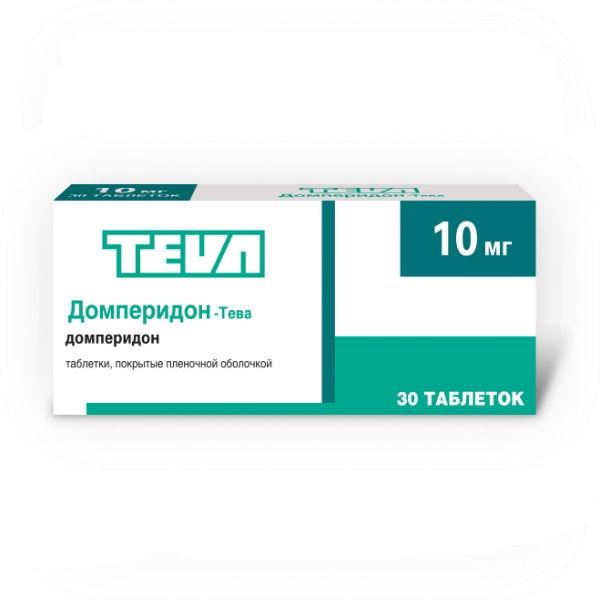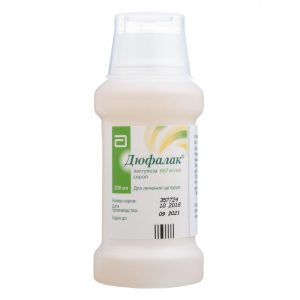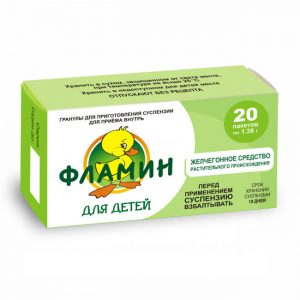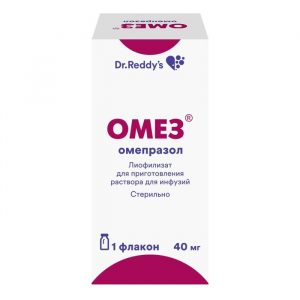Description
Latin name
Domperidone
Release form
Domperidon-Teva. Film-coated tablets.
packaging 30 pcs
¤ °Ñ ¼ ° º ¾ » ¾ ³ ¸Ñ Ñ º ¾ ´ ¹ÑÑ ² ¸
¾ ¼ ¿ Ñ ¸ ´ ¾ ½- ¢ ² ° – ¿Ñ ¾Ñ ¸ ² ¾Ñ ² ¾Ñ ½ ¾ ÑÑ ´ÑÑ ² ¾. º ° · ² ° Ñ ¿Ñ ¾Ñ ¸ ² ¾Ñ ² ¾Ñ ½ ¾ ´ ¹ÑÑ ² ¸ , ÑÑ ¿ ¾ º ° ¸ ² ° Ñ ¸ º ¾Ñ Ñ ¸ ÑÑÑ Ñ ° ½Ñ Ñ ² ½ º ¾Ñ ¾Ñ Ñ Ñ »ÑÑ °ÑÑ Ñ ¾Ñ ½ ¾Ñ Ñ. ¹ÑÑ ² ¸ ¾ ±ÑÑ » ¾ ² » ½ ¾ ± » ¾ º ° ´ ¾ ¹ Ñ ½Ñ Ñ ° »Ñ ½ Ñ ´ ¾ ¿ ° ¼ ¸ ½ ¾ ² Ñ Ñ Ñ ¿Ñ ¾Ñ ¾ ². » ° ³ ¾ ´ °Ñ Ñ ÑÑ ¾ ¼Ñ ÑÑÑ Ñ ° ½Ñ Ñ ÑÑ ¸ ½ ³ ¸ ± ¸Ñ ÑÑÑ ² » ¸Ñ ½ ¸ ´ ¾ ¿ ° ¼ ¸ ½ ° ½ ° ¼ ¾Ñ ¾Ñ ½ÑÑ ÑÑ ½ ºÑ ¸Ñ ¢ ¸ ¿ ¾ ² Ñ ° Ñ ÑÑ Ñ ² ° ºÑ °Ñ ¾Ñ ½ °Ñ ¸ ´ ² ¸ ³ °Ñ »Ñ ½ °Ñ ° ºÑ ¸ ² ½ ¾ÑÑ Ñ ¶ »Ñ ´ º °.
¤ °Ñ ¼ ° º ¾ º ¸ ½ Ñ ¸ º °
±Ñ ¾Ñ ±Ñ ¸Ñ ¿ ¾Ñ » ¿Ñ ¸ ¼ ° ² ½ÑÑ Ñ Ñ, ½ °Ñ ¾Ñ ° º – ± ÑÑ Ñ °Ñ ( ¿Ñ ¸ ¼ ¿ ¾Ñ » ´ ,Ñ ½ ¸ ¶ ½ ½ °Ñ º ¸Ñ » ¾Ñ ½ ¾ÑÑ Ñ ¶ »Ñ ´ ¾Ñ ½ ¾ ³ ¾ Ñ ¾ º ° · ° ¼ ´ »ÑÑÑ ¸ Ñ ¼ ½ÑÑ °ÑÑ ° ±Ñ ¾Ñ ±Ñ ¸Ñ). Cmax ´ ¾ÑÑ ¸ ³ ° Ñ ÑÑ Ñ Ñ · 1 Ñ. ¸ ¾ ´ ¾ÑÑ Ñ ¿ ½ ¾ÑÑ Ñ Ñ ¾ÑÑ ° ² »Ñ Ñ 15% (ÑÑÑ ºÑ ¿ Ñ ² ¾ ³ ¾ ¿Ñ ¾Ñ ¾ ¶ ´ ½ ¸Ñ Ñ Ñ · ¿ Ñ ½Ñ). ¡ ²Ñ · ² ° ½ ¸ Ñ ± » º ° ¼ ¸ ¿ » ° · ¼ – 90%. Ñ ¾ ½ ¸ º ° Ñ ² Ñ ° · » ¸Ñ ½ Ñ º ° ½ ¸, ¿ » ¾Ñ ¾ ¿Ñ ¾Ñ ¾ ´ ¸Ñ Ñ Ñ · . Ñ ° ± ¾ » ¸ · ¸Ñ Ñ Ñ ÑÑ ² ¿ Ñ ½ ¸ ¸ ² ÑÑ ½ º º ¸Ñ Ñ ½ ¸ º ° ( ¿ÑÑ ¼ ³ ¸ ´Ñ ¾ ºÑ ¸ » ¸Ñ ¾ ² ° ½ ¸Ñ ¸ N- ´ · ° » º ¸ » ¸Ñ ¾ ² ° ½ ¸Ñ). ² ¾ ´ ¸Ñ ÑÑ Ñ Ñ · º ¸Ñ Ñ ½ ¸ º 66%, ¿ ¾Ñ º ° ¼ ¸ – 33%, ² Ñ .Ñ. ² ½ ¸ · ¼ ½ ½ ½ ¾ ¼ ² ¸ ´ – 10% ¸ 1%, Ñ ¾ ¾Ñ ² Ñ ÑÑ ² ½ ½ ¾. T1/2 – 7-9 Ñ, ¿Ñ ¸ ² Ñ ° ¶ ½ ½ ¾ ¹ ¥ – Ñ ´ » ¸ ½Ñ Ñ ÑÑ.
Indications
Nausea, vomiting, hiccups of various origins (with toxemia, radiation therapy, dietary disorders, taking certain medications / morphine /, endoscopic and radiopaque studies, in the postoperative period).
Postoperative hypotension and atony of the stomach and intestines, biliary dyskinesia, flatulence, reflux esophagitis, cholecystitis, cholangitis, various types of dyspepsia.
Nausea and vomiting caused by dopaminomimetics.
Contraindications
Gastrointestinal bleeding, mechanical intestinal obstruction, perforation of the stomach or intestines, prolactinoma, children under 1 year of age (up to 5 years and for children weighing up to 20 kg – for tablets), hypersensitivity to domperidone, pregnancy, lactation (breastfeeding).
Pregnancy and lactation
There is insufficient data on the use of domperidone during pregnancy. To date, there is no evidence of an increased risk of malformations in humans. However, domperidone should be prescribed during pregnancy only if its use is justified by the expected therapeutic benefit for the mother and minimal risk to the fetus.
In women, the concentration of domperidone in breast milk is from 10 to 50% of the corresponding plasma concentration and does not exceed 10 ng / ml. The total amount of domperidone excreted in breast milk is less than 7 mcg per day when using the maximum allowable doses of domperidone. It is not known whether this concentration has a negative effect on infants. In this regard, when using domperidone during lactation, breast-feeding should be stopped.
Composition
1 tablet contains:
Active ingredient: domperidone 10 mg
Excipients: microcrystalline cellulose – 60.00 mg, pregelatinized starch – 19.46 mg, colloidal silicon dioxide (aerosil) – 0.09 mg, magnesium 0.45 mg, polyvinyl alcohol – 1.44 mg, macrogol (polyethylene glycol) – 0.73 mg, talc – 0, 53 mg, titanium dioxide – 0.90 mg.
Dosage and administration
Inside before meals, drinking plenty of water.
Adults and children weighing more than 35 kg 1-2 tablets 3-4 times a day. The maximum dose is 80 mg per day. Duration of admission is 4 weeks. Further administration of the drug is possible after consultation with a doctor.
Patients with renal failure are recommended to reduce the frequency of taking the drug to 1-2 times a day.
Side effects of the
Digestive system: Gastrointestinal upset (transient intestinal cramps).
From the nervous system: extrapyramidal disorders (in children and in persons with increased BBB permeability, in adults – isolated cases) these phenomena are completely reversible and disappear after stopping the drug.
Allergic reactions: skin rash, urticaria.
Other: hyperprolactinemia (galactorrhea, gynecomastia, amenorrhea).
Drug interaction
Cimetidine, sodium bicarbonate reduce the bioavailability of domperidone.
M-cholin blockers and antacid drugs neutralize the action of domperidone.
Increase the concentration of domperidone in plasma CYP3A4 isoenzyme inhibitors: antifungal drugs of the azole series, macrolide antibiotics, HIV protease inhibitors, nefazodone (antidepressant). Co-administration with ketoconazole results in an approximately threefold increase in the maximum concentration of domperidone.
Concurrent administration with paracetamol and digoxin had no effect on the concentration of these drugs in the blood.
Compatible with antipsychotic drugs (neuroleptics) and dopaminergic receptor agonists (bromocriptine, levodopa).
Overdose
Symptoms: drowsiness, disorientation, extrapyramidal disorders (especially in children).
Treatment: administration of activated charcoal, with extrapyramidal disorders –
m-cholin blockers, antiparkinsonian drugs or antihistamines with anticholinergic properties.
Storage conditions
In a dry, dark place at a temperature of no higher than 25 ° C.
Shelf suitability
3 Year
Active ingredient
Domperidone
dosage form
Dosage form
tablets
Teva Pharmaceutical Enterprises Co., Ltd., Israel




